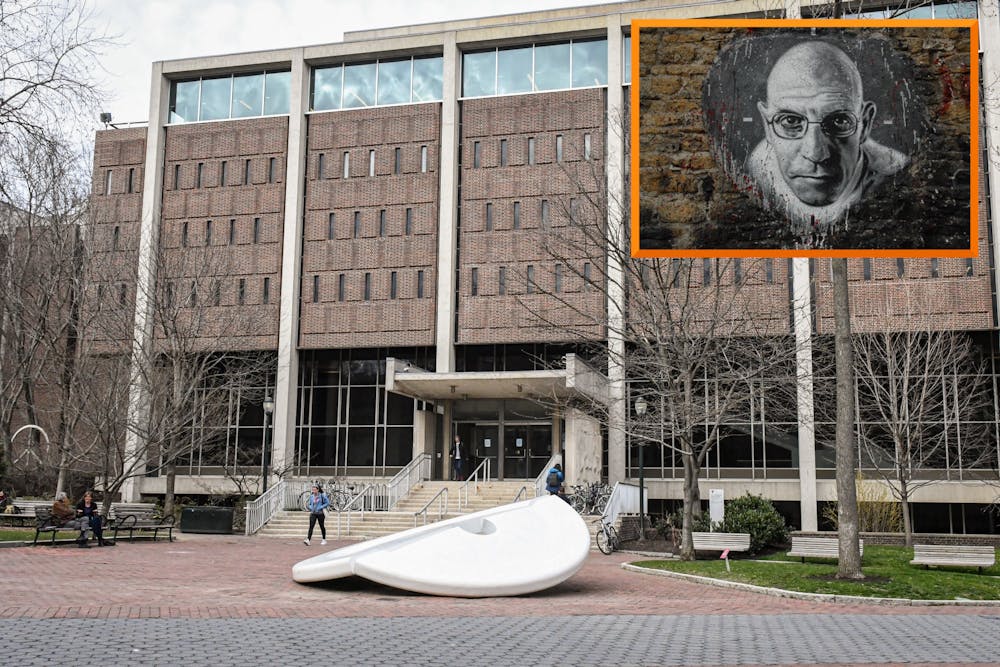OP-ED: Van Pelt Bag Checks are Proof We are All Trapped in Foucault's Panopticon


You’ve just finished a study sesh and are about to make your exit through the front doors of Van Pelt when suddenly, a voice stops you:
“Excuse me. I need to check your bag.”
You freeze in your tracks. A cold bead of sweat rolls down the side of your cheek like quicksilver. Somewhere, somehow, you hear crows. Hands trembling, you slip off your backpack, grab the zippers, and pull outwards.
In the exact sliver of time right after the opening of the robust mouth of your Herschel Supply Co. backpack and just before the all-seeing eyes of the security guard find their ultimate target in your bag’s interior, a sea of questions runs through your mind. “What if they mistake my planner for ill-gotten Etruscan scriptures or, even worse, Wuthering Heights? Holy hell — what will they do to me then? What sort of unimaginable torture lies in wait for me? Christ almighty… what’s with that look they’re giving me? Oh no, they definitely think I shoved a couple of ancient religious manuscripts into the folds of my calculus textbook or pilfered an original copy of J'Accuse…! No… you’ve got it all wrong! Please, I’ll do anything! Anything! I’ll confess to anything you want, just let me go! Oh, uncle!”
You squeeze your eyes shut and steel yourself for the worst.
But then, carrying a pair of Dionysian words, a singular voice drives a nail into the grand façade of your anxieties:
“You’re good.”
You sigh, but in reality, there is no release. There is no catharsis. All you can do is nod and continue to walk through the imposing front doors. You are fundamentally shaken, and you fear that things will never, ever be the same again. A haunting lesson populated your psyche that fateful day: librarians… are always watching.
Foucault conceptualized the panopticon as a way for those in power to use technology to control the flow of information in society, a calculated, intricate apparatus embedded in the very logic of social structure and function. It serves to subjugate the citizen as an object of information rather than appreciating them as an independent agent, capable of meaningful communication. For observation is power, but non-observation is power supreme.
Oh Lordy, was he right. For better or for worse, the panopticon is already here.